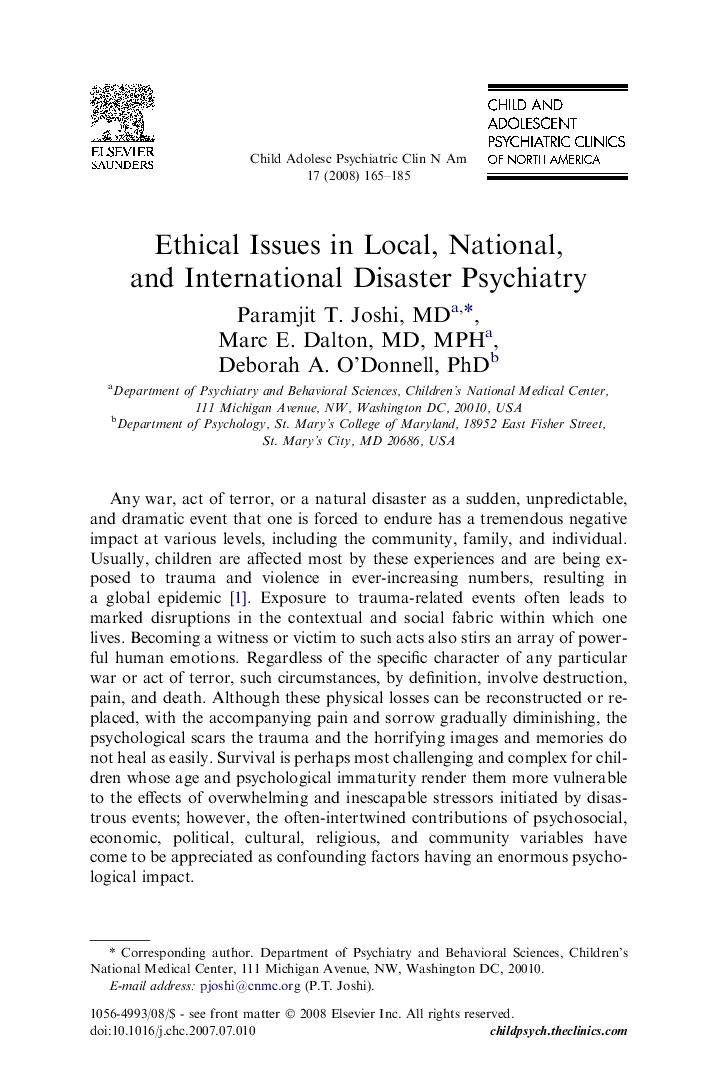| Article ID | Journal | Published Year | Pages | File Type |
|---|---|---|---|---|
| 4151101 | Child and Adolescent Psychiatric Clinics of North America | 2008 | 21 Pages |
Abstract
The world as we know it is plagued with conflict, yet little attention is paid to the inherent ethical issues and challenges related to trauma work. It is important to be aware of these issues because they are bound to raise questions about how medical practitioners confer neutrality in the face of political agendas and war on one hand and maintain a commitment to a person's well-being on the other. When engaged in local, national, or international trauma work, cultural, ethnic, and political literacy is crucial, and an acknowledgment of one's subjectivity is paramount. There are contradictory points of view about practicing value-free psychiatry. Psychosocial programs should examine the long-term political consequences of their work as well as the short- and long-term humanitarian impact.
Related Topics
Health Sciences
Medicine and Dentistry
Perinatology, Pediatrics and Child Health
Authors
Paramjit T. MD, Marc E. MD, MPH, Deborah A. PhD,
